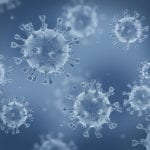

By: Dr. Jermaine Robinson
Family Medicine Resident
Colquitt Regional Medical Center
Coronavirus disease 19 (COVID-19) is a contagious disease that emerged in China in December 2019. COVID-19 reached the United States in January 2020 and was declared a pandemic by the World Health Organization in March of 2020. COVID-19 has caused millions of deaths worldwide and has resulted in long-lasting health problems in individuals who have survived the illness. Prevention including physical distancing, mask-wearing, and hand hygiene has helped to curb the spread of COVID-19. However, the COVID-19 vaccination is the safest and most effective way of protecting yourself and others from becoming infected or becoming seriously ill from the virus.
Although the COVID-19 vaccination was developed very quickly, the U.S. Food and Drug Administration (FDA) determined that the three vaccines manufactured and administered in the United States are safe and effective. All three vaccines have gone through three phases of clinical trials which are the gold standard to demonstrate the effects of experimental therapy. The Centers for Disease Control and Prevention (CDC) state that “during the development of COVID-19 vaccines, phases overlapped to speed up the process, but all phases were completed.” The three phases of clinical trials in addition to further studies completed over a longer period have repeatedly and consistently demonstrated that the COVID-19 vaccine is effective at protecting both adults and children from getting COVID-19.
After receiving the COVID-19 vaccine, some individuals may experience some side effects. The COVID-19 vaccine teaches the bodies’ immune system how to identify and fight the COVID-19 virus. This process of training the body how to defend itself against the COVID-19 infection can sometimes cause symptoms including fever, chills, nausea, headaches, muscle aches, and fatigue. This does not mean that the COVID-19 vaccine made a person sick with COVID-19. The COVID-19 vaccine does not contain the live COVID-19 virus that causes individuals to become ill. As such, a person cannot become sick with COVID-19 with the COVID-19 vaccination.
Current CDC guidelines state that once a person is fully vaccinated, they can travel within the United States and abstain from COVID-19 testing before or after travel and refrain from self-quarantine after travel. Fully quarantined individuals can also travel internationally without COVID-19 testing unless COVID-19 testing is required from the country in which the person is traveling. A fully vaccinated can also refrain from self-quarantine after returning to the United States.
COVID-19 vaccinations are effective at preventing COVID-19 infection in most people. However, the vaccine is not 100% effective at preventing infection and some people who are fully vaccinated may still get infected by the COVID-19 virus. This is called a “vaccine breakthrough infection.” People with a breakthrough infection may still develop symptoms of COVID-19 and can be contagious. However, they are less likely to develop severe symptoms than unvaccinated individuals and much less likely to be hospitalized or die from COVID-19. Thus, it is recommended that everyone ages five years and older get vaccinated to protect themselves and others who are not able to be vaccinated from severe illness and death.







